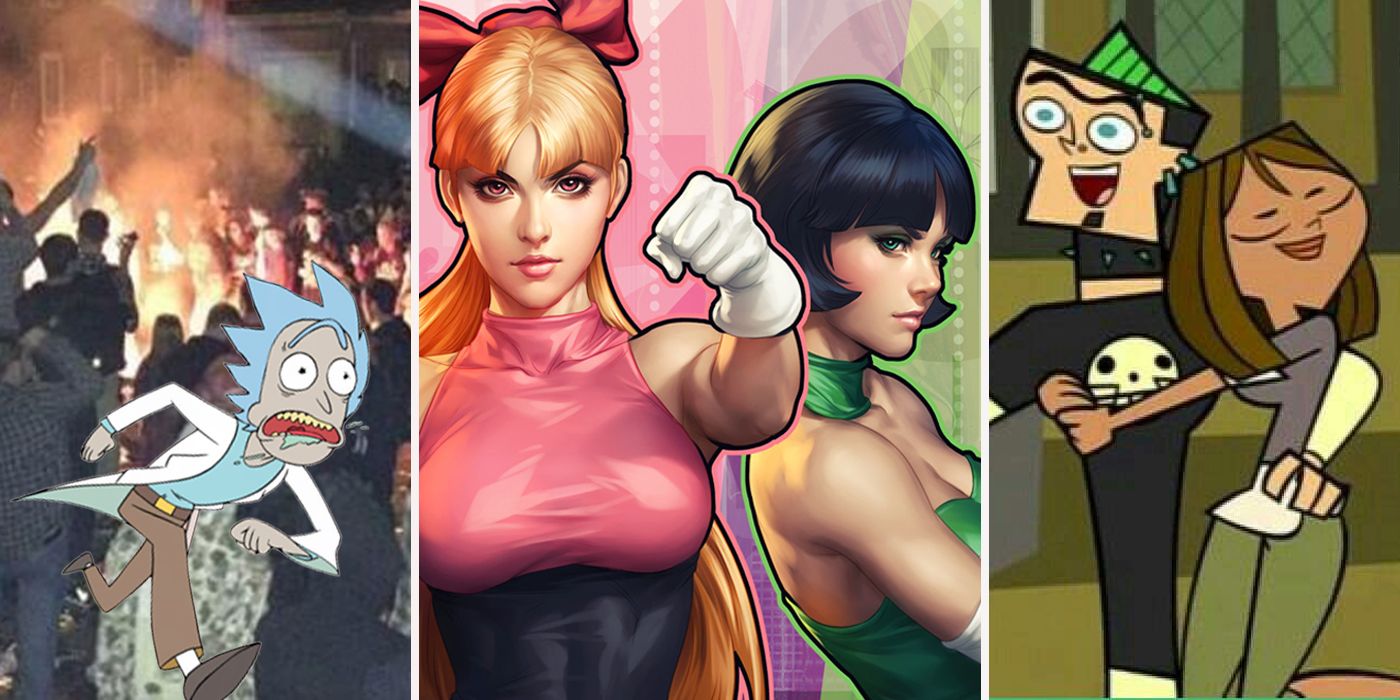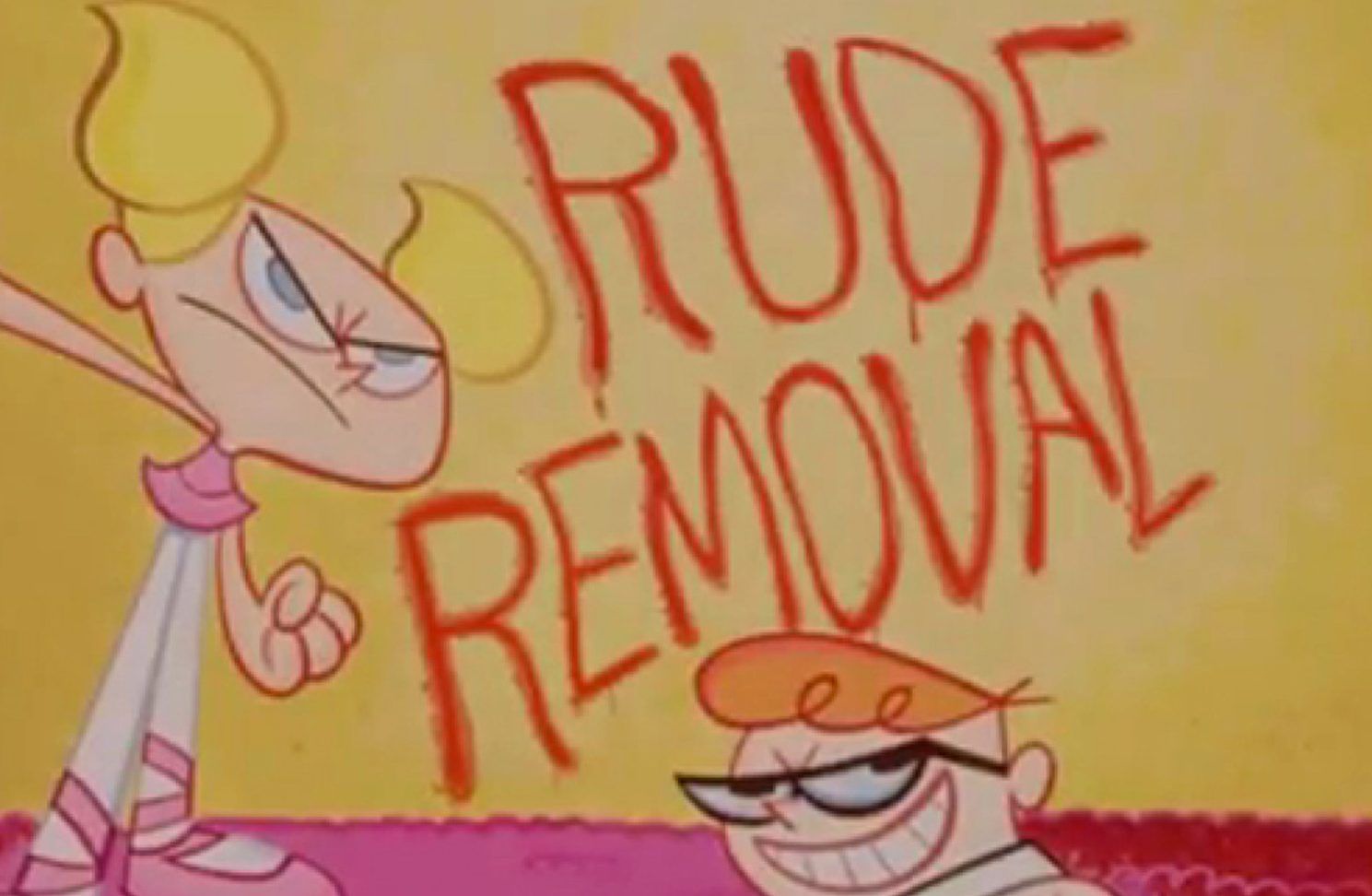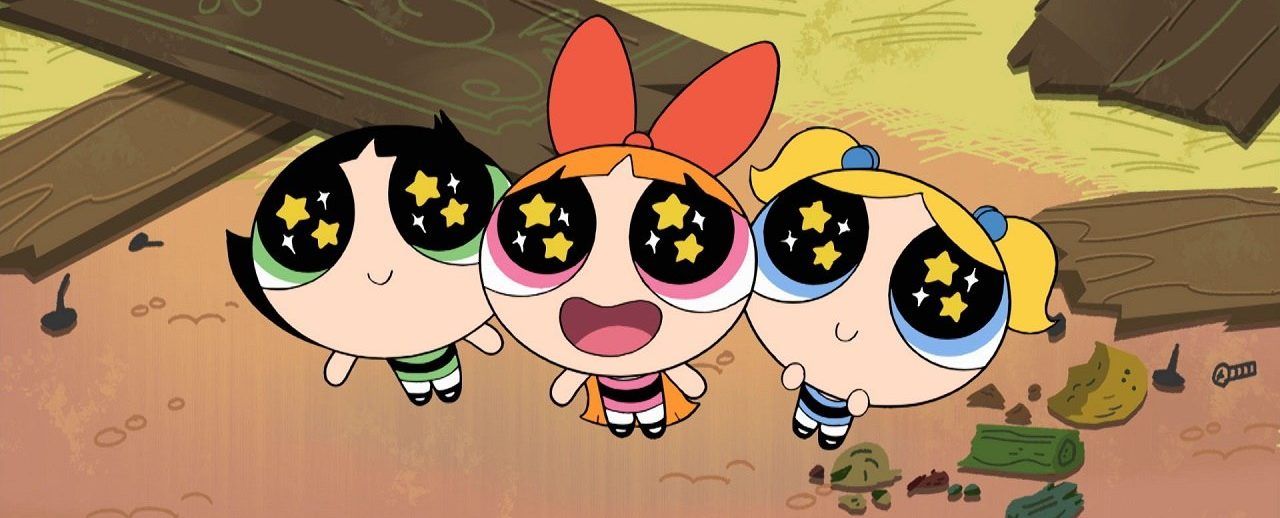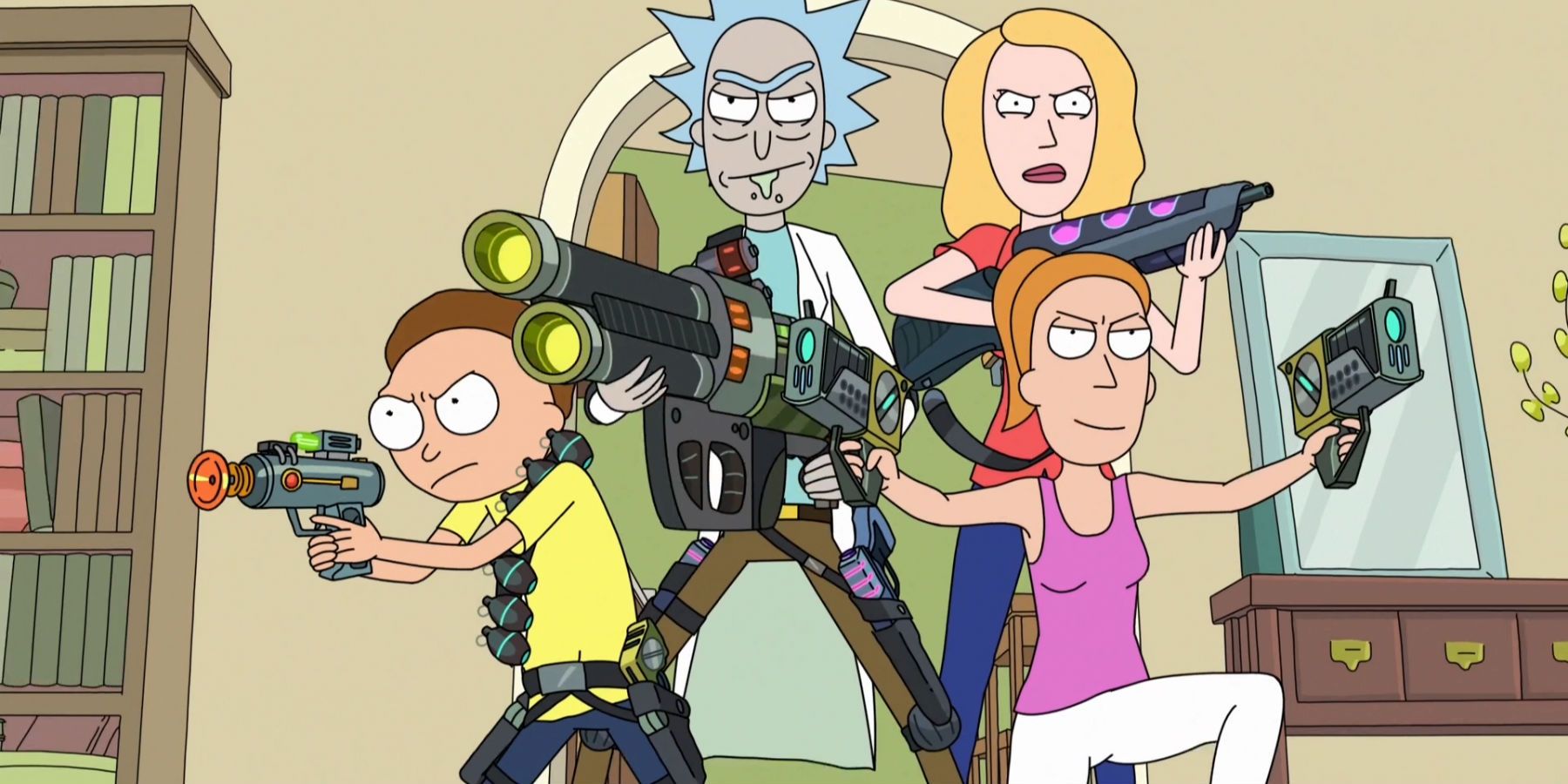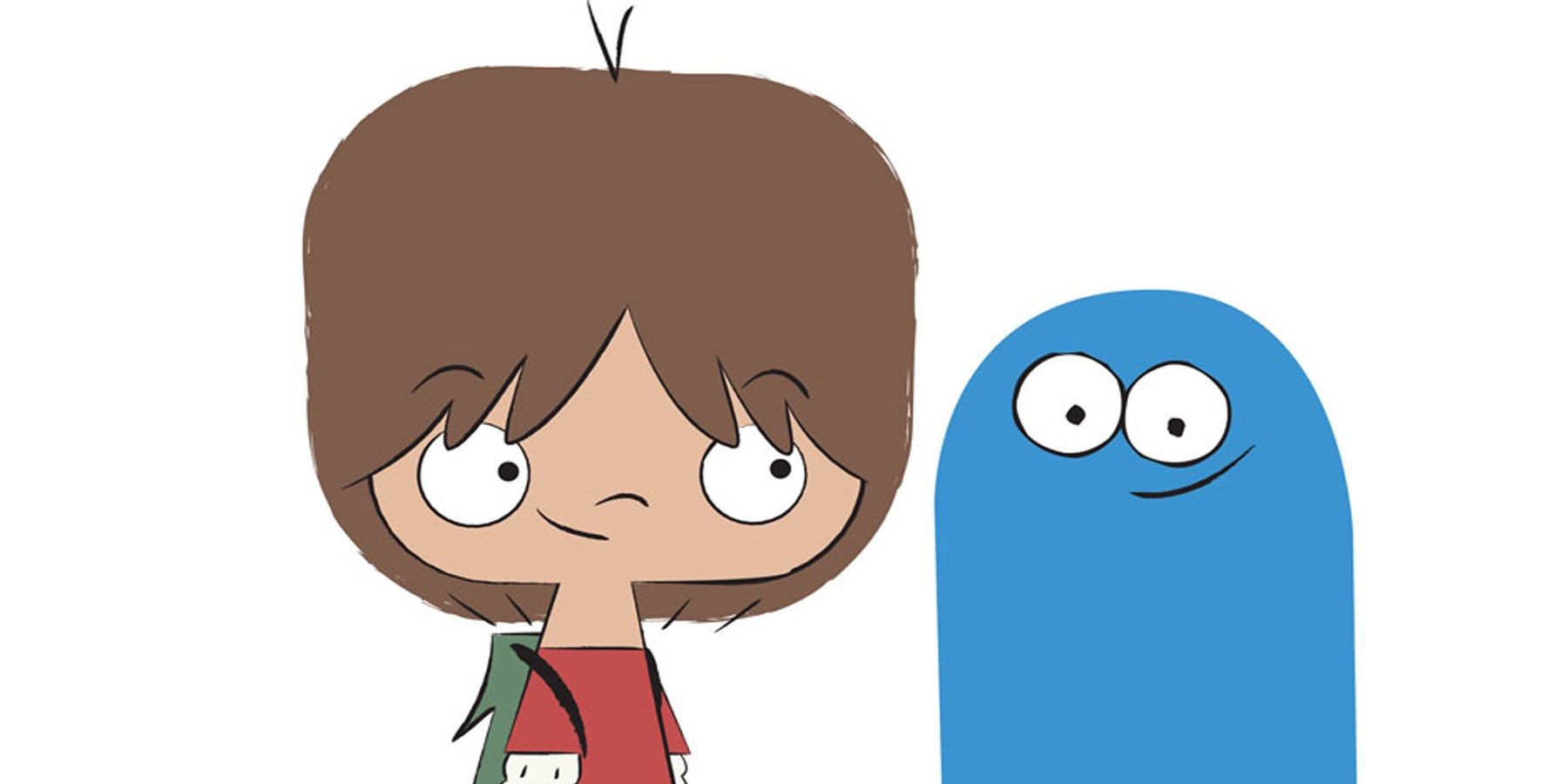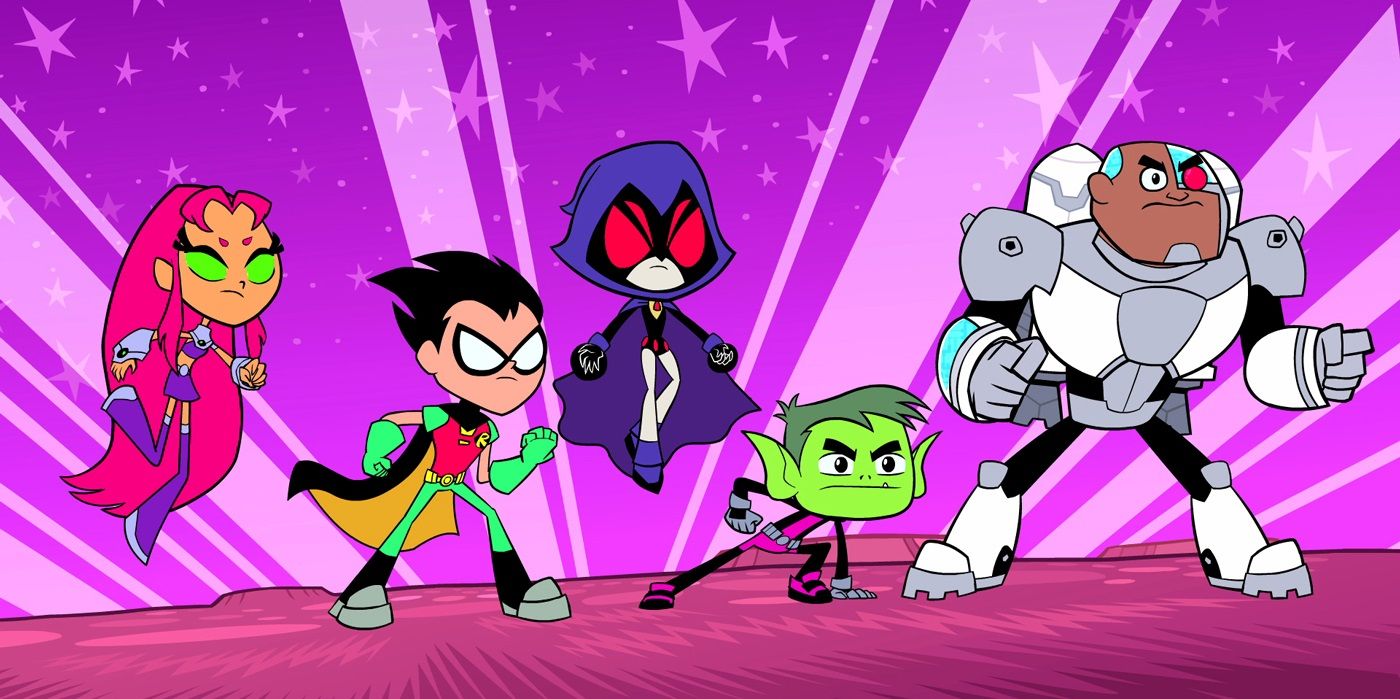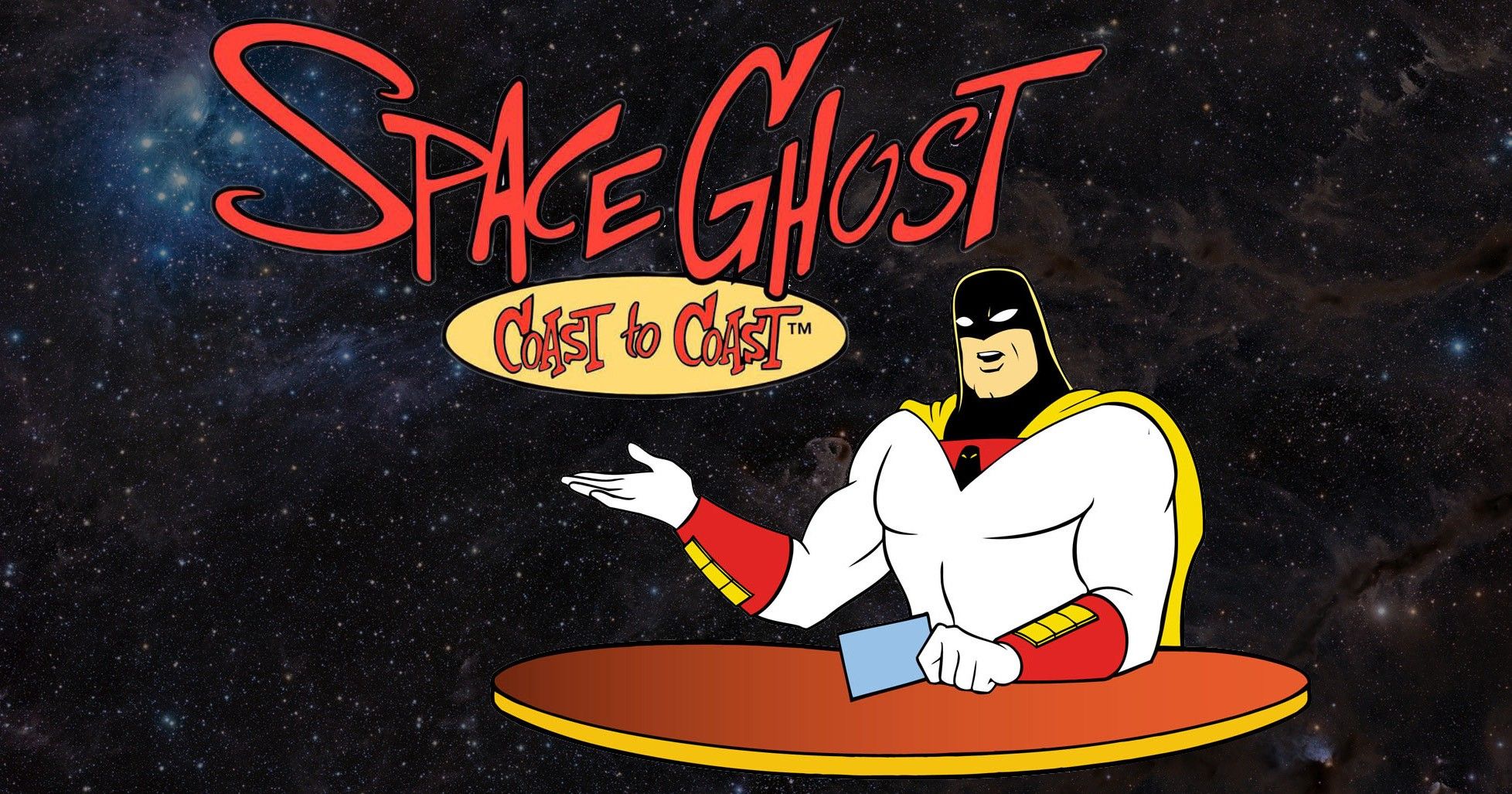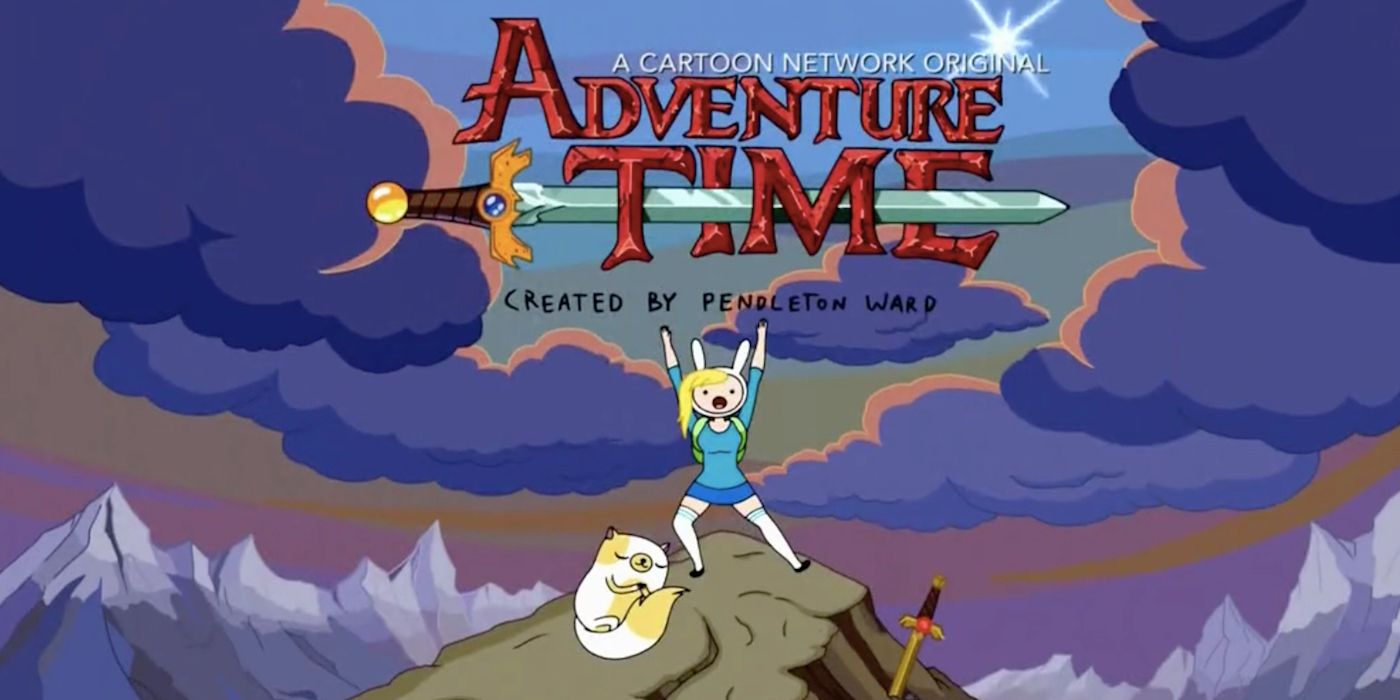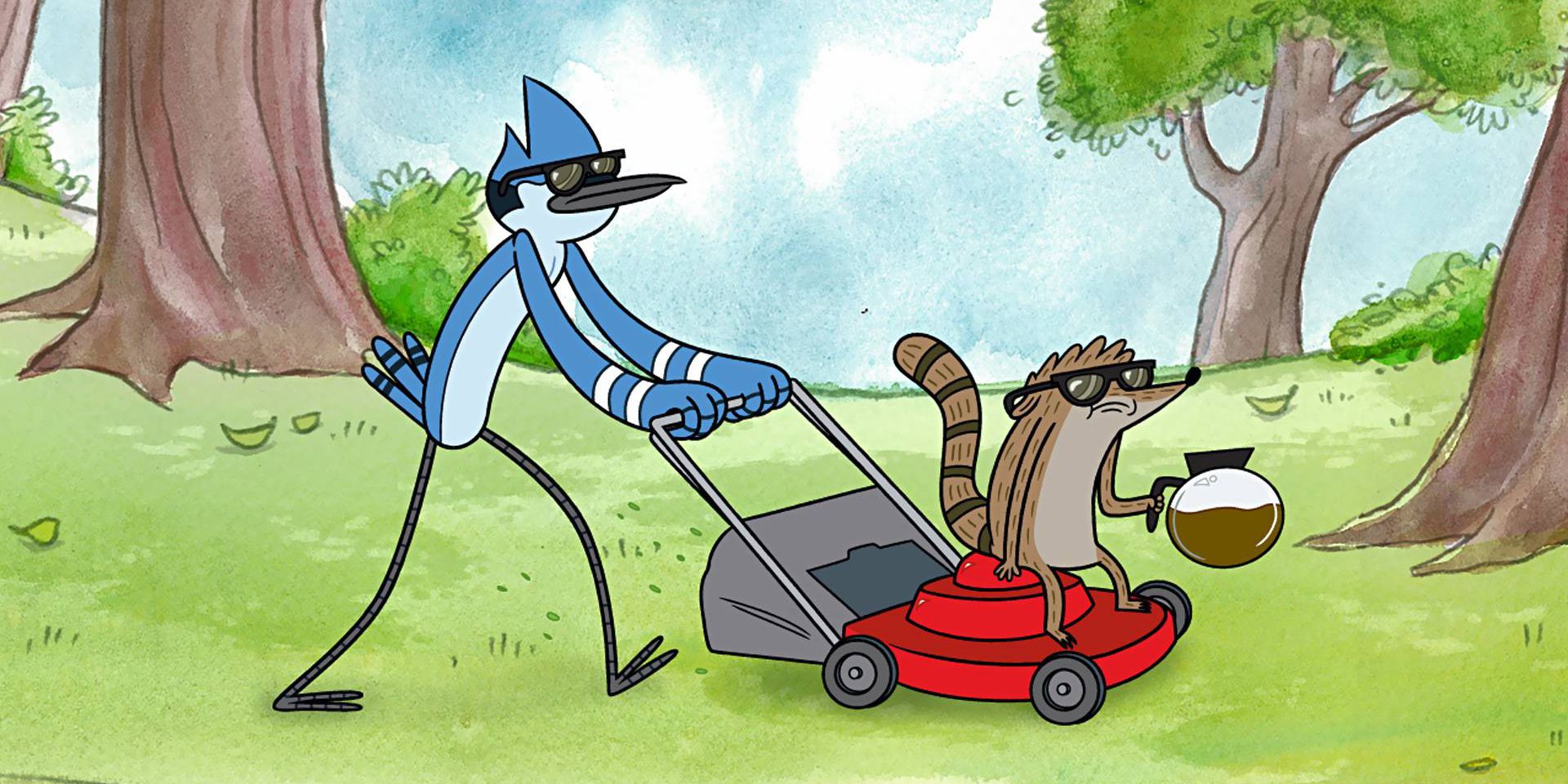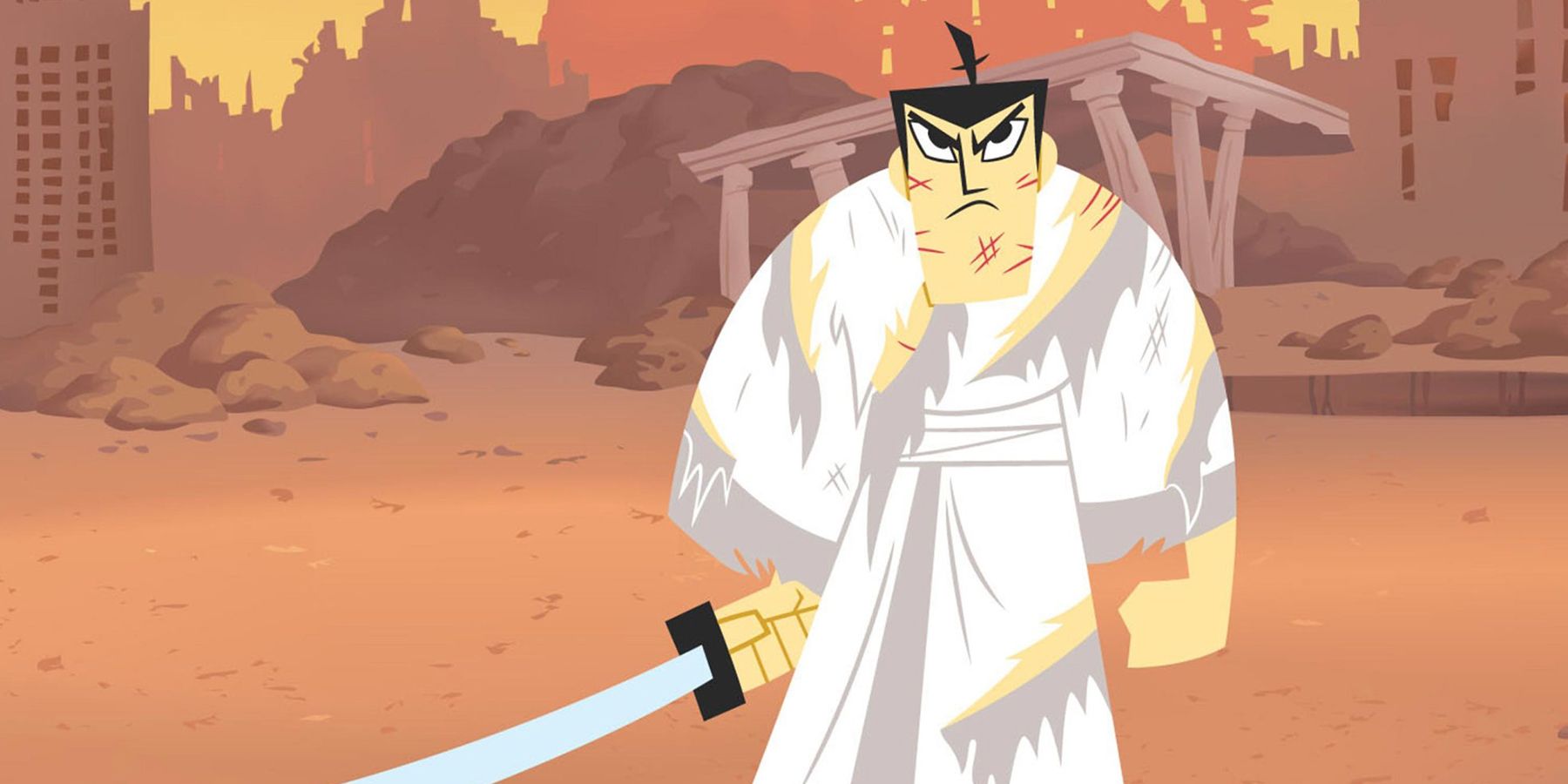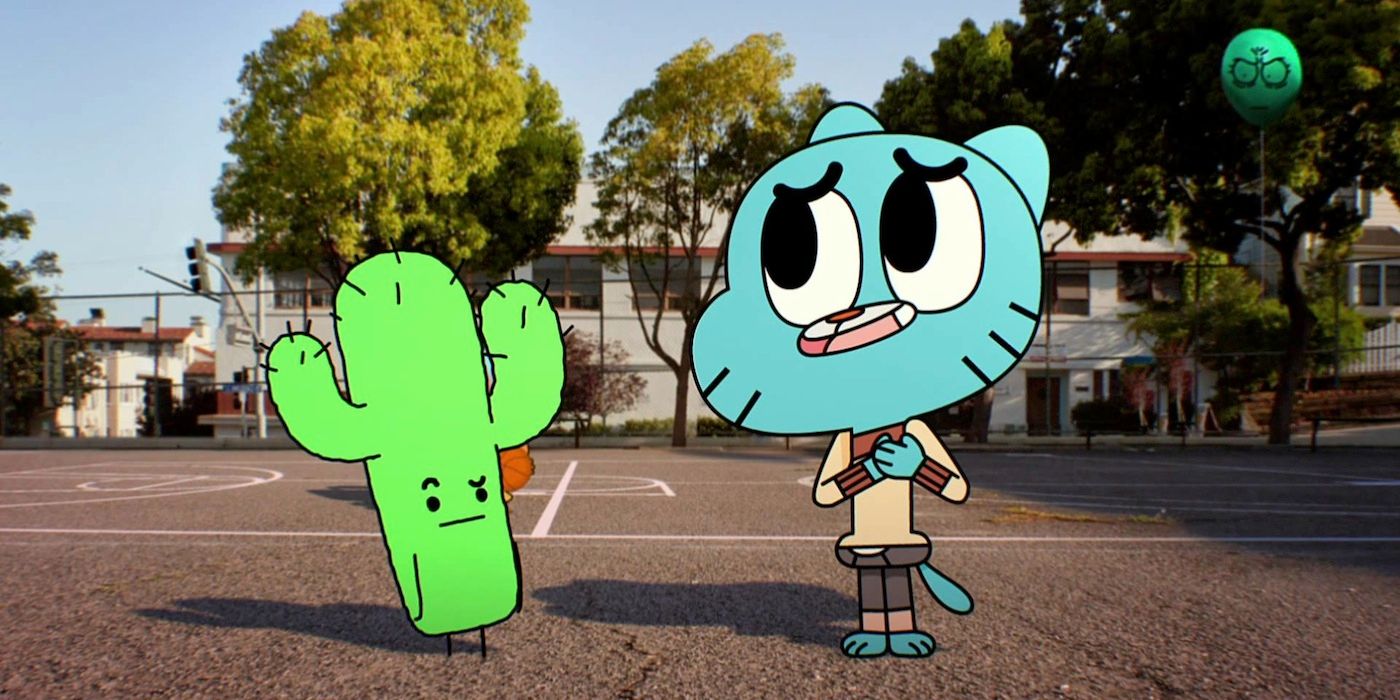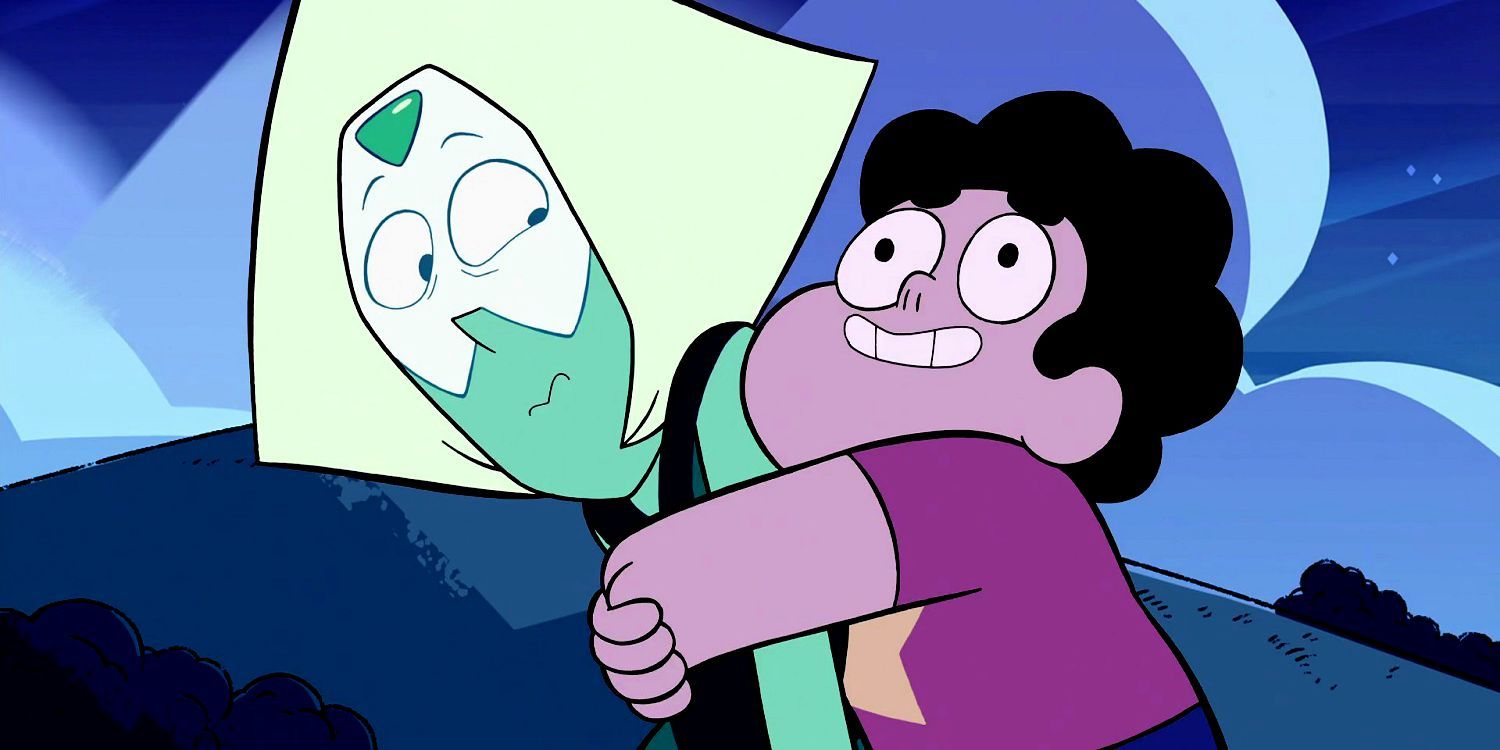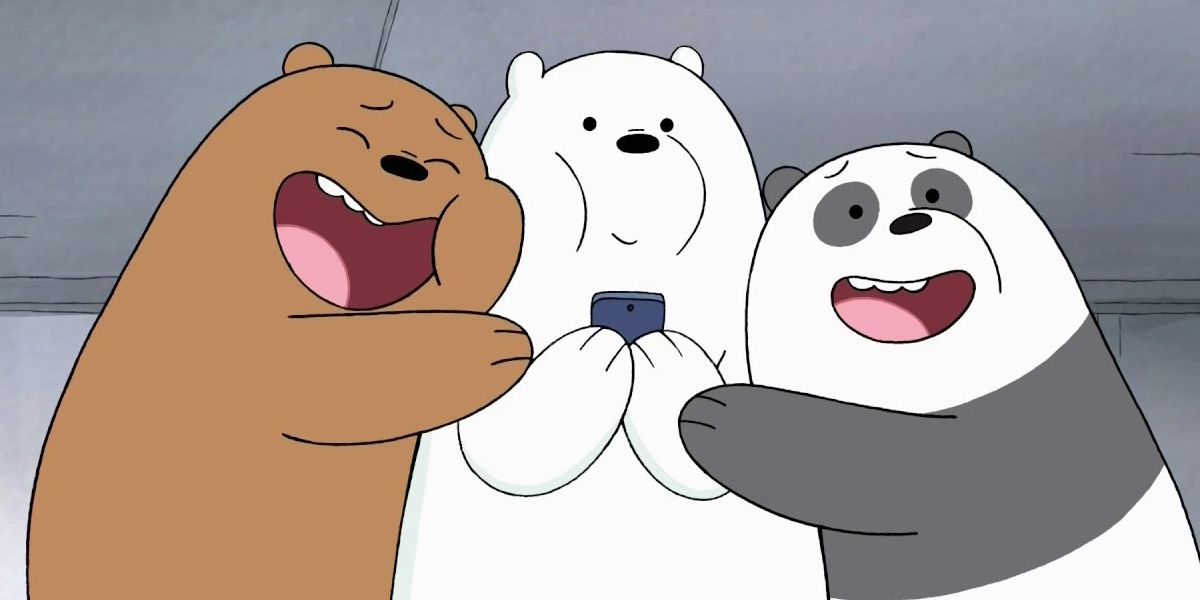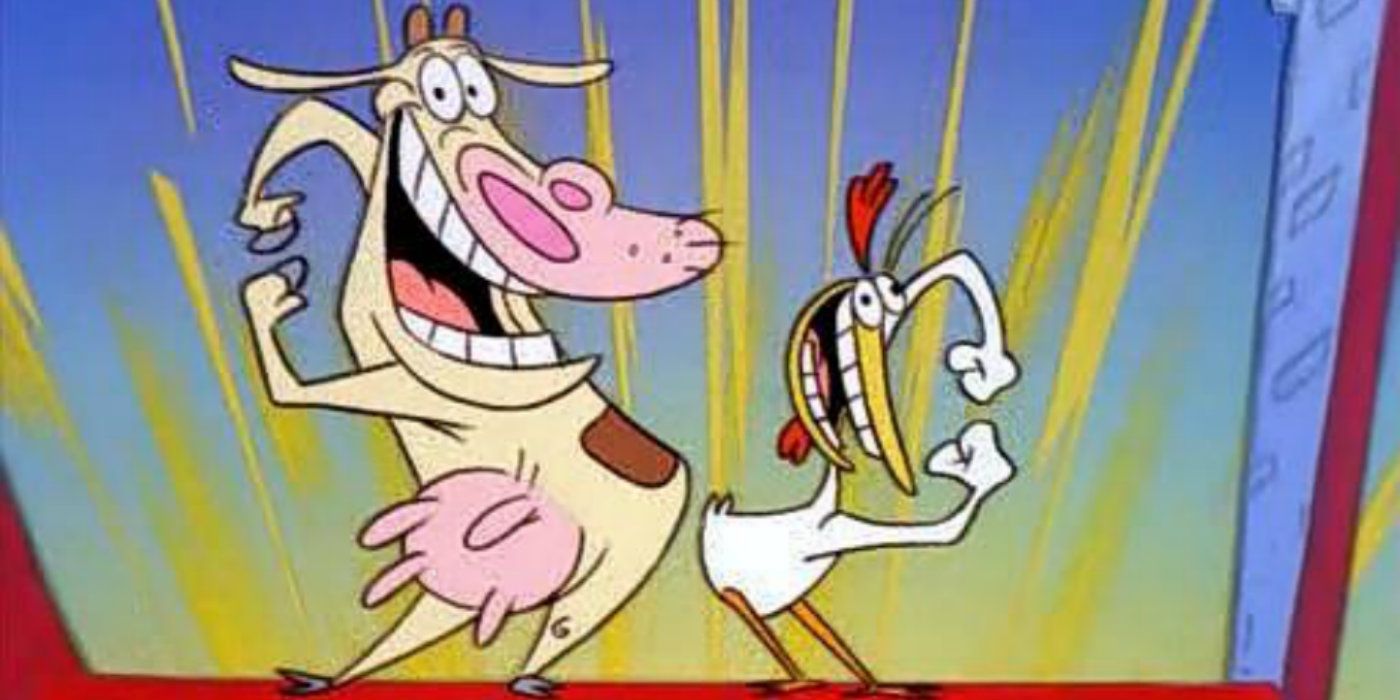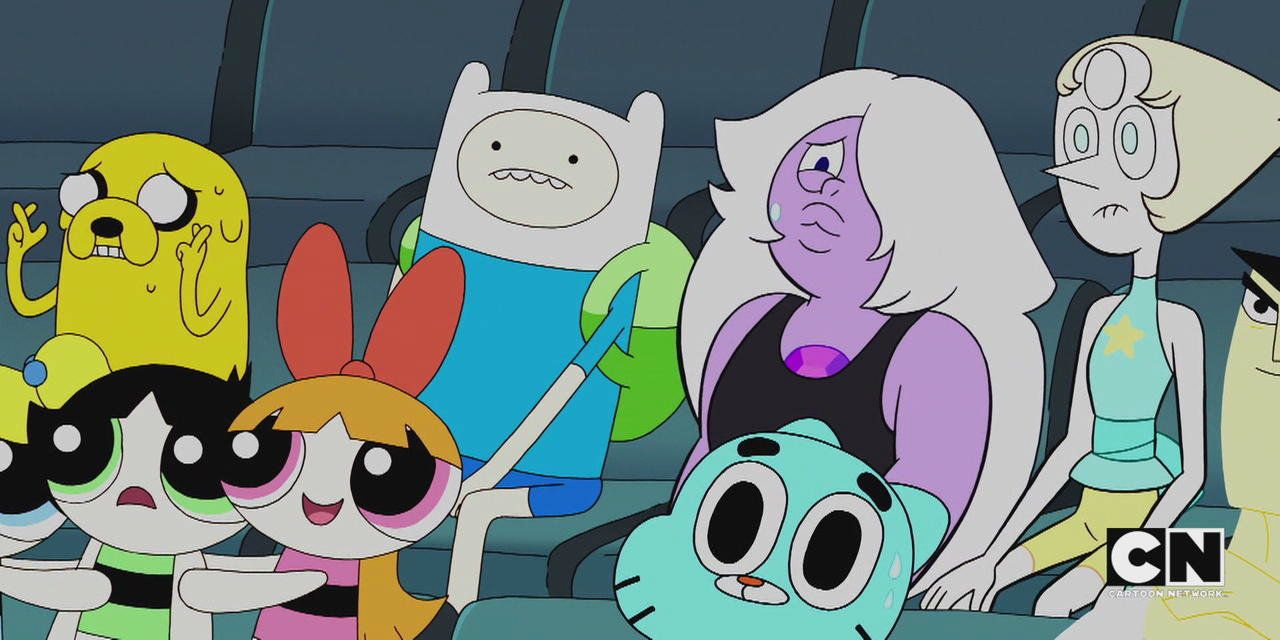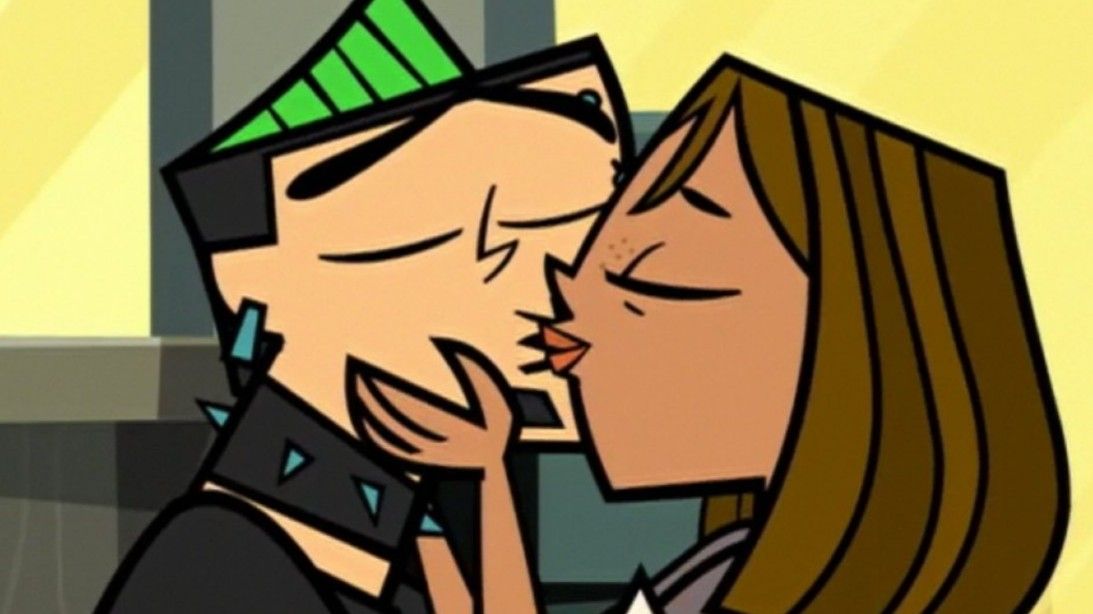Who doesn't love cartoons? When the world gets dark and gloomy, we always have these bright fantasy worlds populated with innocent, fun-loving creatures to retreat to.
The bouncy music, the childlike wonder, nothing could go wrong in a cartoon universe, right? However, it turns out that lots of your favorite childhood cartoon shows were actually way darker than you may have realized-- and that was all kind of on purpose.
We aren't talking about urban legends like the adult jokes supposedly hiding in the background of iconic Disney movies or the allegedly adult version of Pokémon available only to Japanese fans.
Lots of animated series, particularly the ones making up Cartoon Network's popular lineup of original content, are filled to the brim with innuendo and depressing real-life origins... and the creators are have been more than happy to reveal all of the skeletons rattling around in their closets.
From Adventure Time's accidentally confirmed apocalypse to Samurai Jack's long-lost ending and Duncan and Courtney's Total Drama private life, here are the 15 Secrets You Didn't Know Behind Cartoon Network Shows.
Dexter's Lab Couldn't Stop Getting In Trouble
For a long time, rumors maintained that the Dexter's Lab episode "Dial M for Monkey: Barbequor" had been banned... well, pretty much everywhere, for depicting an offensive gay stereotype with the character Silver Spooner.
It would later be revealed that while Spooner was indeed the catalyst behind the ban, it was actually Marvel and the creators of Silver Surfer threatening legal action over the animated parody that got the episode pulled from airwaves around the world.
The banning of "Barbequor" may seem like a misunderstanding, but make no mistake, the writers behind Dexter's Lab knew exactly what they were doing when "Dexter's Rude Removal" was blocked from television play.
After the episode became somewhat of an urban legend, creator Genndy Tartakovsky confirmed its existence, saying that a mishap had created a "rude" version of Dexter whose curse words had to be bleeped out 13 times.
The Powerpuff Girls Was Written As An Adult Cartoon
Ever gone back to watch The Powerpuff Girls as an adult and thought, "Whoa, I can't show this to my kids"? That's not an accident. Despite the sugar, spice, and kick-butt fighting skills, PPG was not actually created for little girls-- or any kid, for that matter.
When creator Craig McCracken first dreamed up his crime-fighting trio they were dubbed "The Whoopa** Girls" and were written for an adult audience. Cartoon Network loved McCracken's pitch, but requested changes be made to make the series more appropriate for children.
McCracken changed the name... and not much else. Adult references and humor are packed into the background of many of the show's seemingly sweet and innocent episodes. The writers of the reboot made sure to keep that same hidden humor in their own scripts.
The Rick And Morty Szechuan Sauce Riots
How do you not mention the debacle that was McDonald's Rick and Morty inspired Szechuan sauce while talking about dark Cartoon Network-related incidents?
The sauce packets were only available for a day, but they left an impression that will last a lifetime. McDonald's re-released their 1998 Mulan Szechuan sauce thanks to Rick's big season 3 reveal: he isn't avenging his family, he just wants that sauce.
Unfortunately, McDonald's did not provide enough sauce for the huge turnout of Rick and Morty fans seeking a packet of their own and chaos ensued, including reports of riots and people jumping on counters.
The company has promised a second run that will last longer, take place in more stores, and will have more of the coveted sauce packets on hand.
The Sad Origins Of Foster's Home For Imaginary Friends
There isn't really anything dark about the adorably zany Foster's Home For Imaginary Friends... on the surface. No matter how many times these imaginary friends fail to find their forever home, they know they will always be welcome in Madame Foster's gothic mansion.
However, behind the innocent adventures and hopeful friendships lies the sad (true) tale of Craig McCracken's adopted dogs.
When McCracken and his then-fiancée adopted two dogs from an animal shelter, the cartoonist began to wonder what his pets' lives were like before he came along.
He realized that they were now forced to start over with total strangers and decided to explore that train of thought using imaginary friends instead of animals. This perhaps explains why the imaginary friends seem to frequently sabotage their own adoption process.
The Teen Titans Go Actors Didn't Trust The Show's Writers
For a long time, Teen Titans Go was known as the show that wasn't as good as Teen Titans. Parents wondered why kids cared enough to watch it and critics ripped into its bouncy themes as compared to Teen Titans' surprisingly heavy storylines.
Well, it turns out that the show's voice actors shared those same concerns, which made things rather difficult for the writers.
The show's creators admitted their own voice cast didn't actually trust them to make the reboot as good as the original and would often fight with them over the chosen dialogue, believing it to be out of character for their animated counterparts.
The writers got the last laugh, apparently, as Teen Titans Go is finally beginning to receive genuine praise and respect from critics and fans, garnering a full-length movie for the goofy reboot.
Everyone Hated Space Ghost Coast To Coast
Mike Lazzo, who worked as senior vice president for Adult Swim, dropped a major truth bomb when talking about the origins of Cartoon Network's original programming.
Since nobody had any faith in Space Ghost Coast to Coast, no money was given to the programming's creators. It was basically a volunteer project. Because of this, the creators of Space Ghost Coast to Coast were forced to recycle as much of the original cartoon's footage as humanly possible.
As the show began to become a reality, showrunners were in need of procuring real-life celebrities to give relevance to half-animated/half-live-action talk show.
Unfortunately, interview subjects found the idea of a cartoon talk show host ridiculous and couldn't take things seriously. Many were caught off guard and couldn't give compelling answers to interview questions, while others, like the Bee Gees, joked around so much that only 19 seconds of their appearance ended up being usable.
Adventure Time Wasn't Always Post-Apocalyptic
For a while, fans of Adventure Time were certain the fantastical Land of Ooo was actually set years in the future after a devastating apocalypse. That theory seemed to have been confirmed in the season 2 episode "Video Makers" which references the devastating Mushroom War.
However, it took the show's creator much longer to recognize the dystopian setting Finn was romping around in.
Pendleton Ward admitted that a lot of the show's canon is created by a writer for a single episode and then just sticks for the rest of the series. It wasn't until season 1's episode 8 that Ward realized he had set Adventure Time in a post-apocalyptic world.
Up to that point, he thought he had created a fantasy land. However, when a scourge of businessmen rose up from a lake in the episode "Business Time" he realized the fans had been right all along.
The Regular Show Was Made Up As It Went Along
Everyone loves a good ad-libbing comedy. Bill Murray's brilliant performance in Ghostbusters and the intimidating spontaneity of Neil Flynn's anti-social janitor in Scrubs are the stuff of legend.
That kind of free-spirited creativity is a little harder to pull off in an animated setting where dialogue, action, sound, and art all need to line up perfectly... or is it?
Creator JG Quintel revealed that the show doesn't actually follow a script -- they don't even bother to write one. Artists are given a rough idea of the direction each episode will go and they fill in the blanks from there.
The dialogue is written around the action they create. Showrunners do request a lot of changes, however, leading Quintel to admit that there could be two alternate versions of the Regular Show: The Movie floating around out there thanks to all the changes the artists were requested to make.
The Writer Of Samurai Jack Didn't Know How To End It
Samurai Jack went off the air with an unfinished whisper. Fans were shocked that such a popular, well-written series would seemingly end without warning or resolution.
However, that wasn't quite the whole truth-- creator Genndy Tartakovsky had always planned on ending Jack properly .. he just had no clue how to do it.
Tartakovsky admitted that when Jack first ended after season 4, he had no idea where to take the series finale. So, rather than coming up with something subpar on the spot, he let season 4 end without actually bringing a close to Jack's story.
Tartakovsky finally came up with his preferred ending to Samurai Jack two years after season 4 was over. A gritty not-quite-reboot finally gave him the ability to close the story once and for all over a decade later.
Everything About The Amazing World Of Gumball Is Wrong
Maybe two wrongs don't make a right, but countless wrongs make a popular animated television series. Benjamin Bocquelet, creator of The Amazing World of Gumball, didn't actually come up with original characters for his cartoon series.
He reused rejected characters from his time working in advertising. Bocquelet admitted that when Cartoon Network asked him to come up with a series pitch, he "sold to them characters that I had already been paid to do." Clever, very clever.
The characters aren't the only features in Gumball that were born out of former mistakes. Bocquelet realized that the show's writers were making a lot of mistakes in terms of continuity.
However, rather than trying to correct those mishaps, they became key points that would go on to inform the entire series, even helping Bocquelet to shape his planned series ending.
Steven Universe Is Growing With Its Fan Base
Fans of Steven Universe often point out the series' penchant for darker and darker storylines. While SU has been careful to maintain its message of hope and love, it's hard to ignore the gender politics and consent-based stories hiding inside the plot.
According to series creator Rebecca Sugar, that's completely intentional.
Sugar knew that she wanted to create a cartoon that didn't treat children as just children. It was her intention, from the very beginning, to dive into more adult topics, but to do it slowly and with consideration.
Sugar said that she wanted the series to grow with the fan base, which naturally led to more adult stories throughout the seasons. However, she has been careful to go darker only little bits at a time, attempting to unfold the darkness behind the show in the way a child may learn about the real world in bits and pieces.
Ice Bear In We Bare Bears Is Totally Ad-Libbed
We Bare Bears' youngest brother, Ice Bear, is a total mystery. Where did he come from? Why is he so quiet? How is he so good at everything? It turns out that much of Ice Bear's talent is made up on the spot just so the show's writers can give the prodigy-bear something to do.
For example, in the episode in which the bears meet Ranger Tabes, Grizz and Panda are busily chatting away with their new friend. Being the silent type, Ice Bear needed something to do, so the writers stuck him in the background staring at his own "Wanted" poster.
According to series creator Daniel Chong, this is how many of Ice Bear's talents came to be. Chong also credited Ice Bear's voice actor, comedian Demetri Martin, with ad-libbing most of the stoic polar bear's lines.
Though he doesn't speak much, Ice Bear's third-person zingers are often the punchline to the scene's main joke.
Cow And Chicken Began As A Bedtime Story
Cow and Chicken was one of the first cartoons that really got people paying attention to all the double entendres and secret dirty jokes hiding in its animation cells.
Inappropriate jokes, lesbian references, and a temp job at an adult phone line are just a few of the now-infamous adult references snuck into this show. However, it all began as something much more innocent.
Creator David Feiss had made up a bedtime story for his daughter only three weeks before Cartoon Network approached him about creating original programming for them.
Feiss showed them the book that he had created featuring what would become Cow and Chicken. Cartoon Network loved Feiss's characters but requested a more fleshed-out story, which led to the raunchy plot that we know today.
Australia Censors Cartoon Network Shows All The Time
While Cartoon Network may be perfectly fine with its shows' sneaky adult references (or maybe the writers are just really good at pulling one over on them), other countries aren't so pleased with all those dirty jokes.
Australia is particularly tough on Cartoon Network, earning a full wiki page dedicated to reporting the censoring of the network's cartoons in the country.
Unfortunately, the strict censorship seems to have gone a little overboard in many cases. Any use of the word "sucks" is removed regardless of context. For example, the line "this sucks" would not be allowed in the final Australian cut.
Similarly, any and all references to dating are removed, no matter how innocent. It appears that the mere mention of a boyfriend or girlfriend is strictly off-limits in Australian cartoons.
Please Stop Asking If Duncan And Courtney Slept Together
Lots of reality TV fans get invested in the relationships forged between contestants onscreen, and the same goes for animated characters. Total Drama won over viewers with the love/hate relationship between preppy princess Courtney and her bad boy beau Duncan.
However, Duncan voice actor, Drew Nelson, would really appreciate it if people would stop asking him inappropriate questions about the star-crossed pair. It (understandably) creeps him out.
The fan obsession with Duncan and Courtney's coupling does make sense, though, as many believe that the couple was unfairly broken up in order to shoehorn in a love triangle with gothy Gwen.
Some rumors indicate that this theory could be correct, and legend has it that Cartoon Network really got into the role of shady reality TV show producers and requested the premature breakup themselves.
---
Can you think of any other dark secrets about Cartoon Network shows? Have your say in the comment section!

